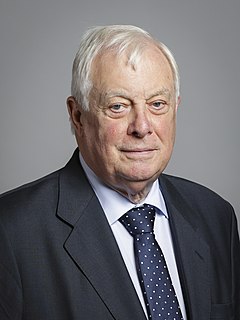A Quote by Ahmet Necdet Sezner
Unless we abandon elements which resemble a police state, we can't meet the demands of being a modern society.
Related Quotes
There is the great, silent, continuous struggle: the struggle between the State and the Individual; between the State which demands and the individual who attempts to evade such demands. Because the individual, left to himself, unless he be a saint or hero, always refuses to pay taxes, obey laws, or go to war.
The State has always one purpose: to limit, control, subordinate the individual and subject him to the general purpose Through its censorship, its supervision, and its police the State tries to obstruct all free activity and sees this repression as its duty, because the instinct of self-preservation demands it. The State does not permit me to use my thoughts to their full value and communicate them to other men unless they are its own Otherwise it shuts me up.
In point of fact there are a certain number of values and of forces which are of decisive importance in our world civilization: the primacy of production, the continual growth of the power of the State and the formation of the National State, the autonomous development of technics, etc. These, among others - far more than the ownership of the means of production or any totalitarian doctrine - are the constitutive elements of the modern world. So long as these elements continue to be taken for granted, the world is standing still.
Industrial Society is not merely one containing 'industry,' large-scale productive units capable of supplying man's material needs in a way which can eliminate poverty: it is also a society in which knowledge plays a part wholly different from that which it played in earlier social forms, and which indeed possesses a quite different type of knowledge. Modern science is inconceivable outside an industrial society: but modern industrial society is equally inconceivable without modern science. Roughly, science is the mode of cognition of industrial society, and industry is the ecology of science.
The essence of the modern state is that the universal be bound up with the complete freedom of its particular members and with private well-being, that thus the interests of family and civil society must concentrate themselves on the state. It is only when both these moments subsist in their strength that the state can be regarded as articulated and genuinely organized.
You see these dictators up on their pedestals, surrounded by the bayonets of their soldiers and the truncheons of their police. They're afraid of words and thought. ... They make frantic efforts to bar our thoughts and words. ... A state of society where men may not speak their mind - where children denounce their parents to the police - where a businessman or small shopkeeper ruins his competitor by telling tales about his private opinion. Such a state of society cannot long endure if it is continually in contact with the healthy outside world.
The ‘Great Society’ has not worked and it’s put us into the modern welfare state. If you look at China, they don’t have food stamps. If you look at China, they’re in a very different situation. They save for their own retirement security…they don’t have the modern welfare state and China’s growing. And so what I would do is look at the programs that LBJ gave us with the Great Society and they’d be gone.
[M]ore than they wanted freedom, the Athenians wanted security. Yet they lost everything-security, comfort, and freedom. This was because they wanted not to give to society, but for society to give to them. The freedom they were seeking was freedom from responsibility. It is no wonder, then, that they ceased to be free. In the modern world, we should recall the Athenians' dire fate whenever we confront demands for increased state paternalism.
The challenges that young people are mobilizing against oppressive societies all over the globe are being met with a state-sponsored violence that is about more than police brutality. This is especially clear in the United States, given its transformation from a social state to a warfare state, from a state that once embraced a semblance of the social contract to one that no longer has a language for justice, community and solidarity - a state in which the bonds of fear and commodification have replaced the bonds of civic responsibility and democratic vision.































